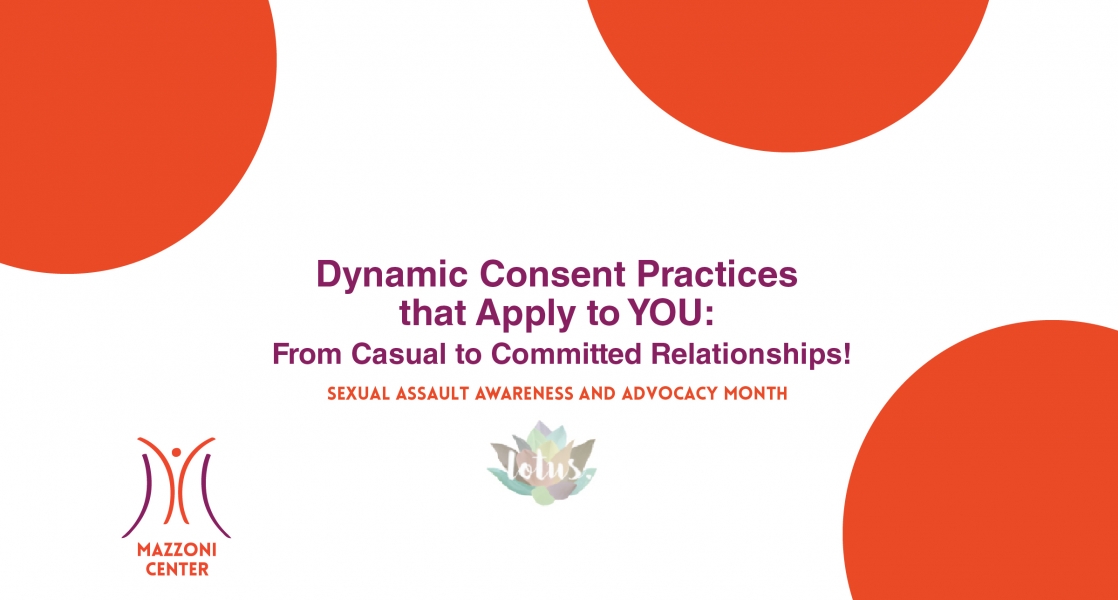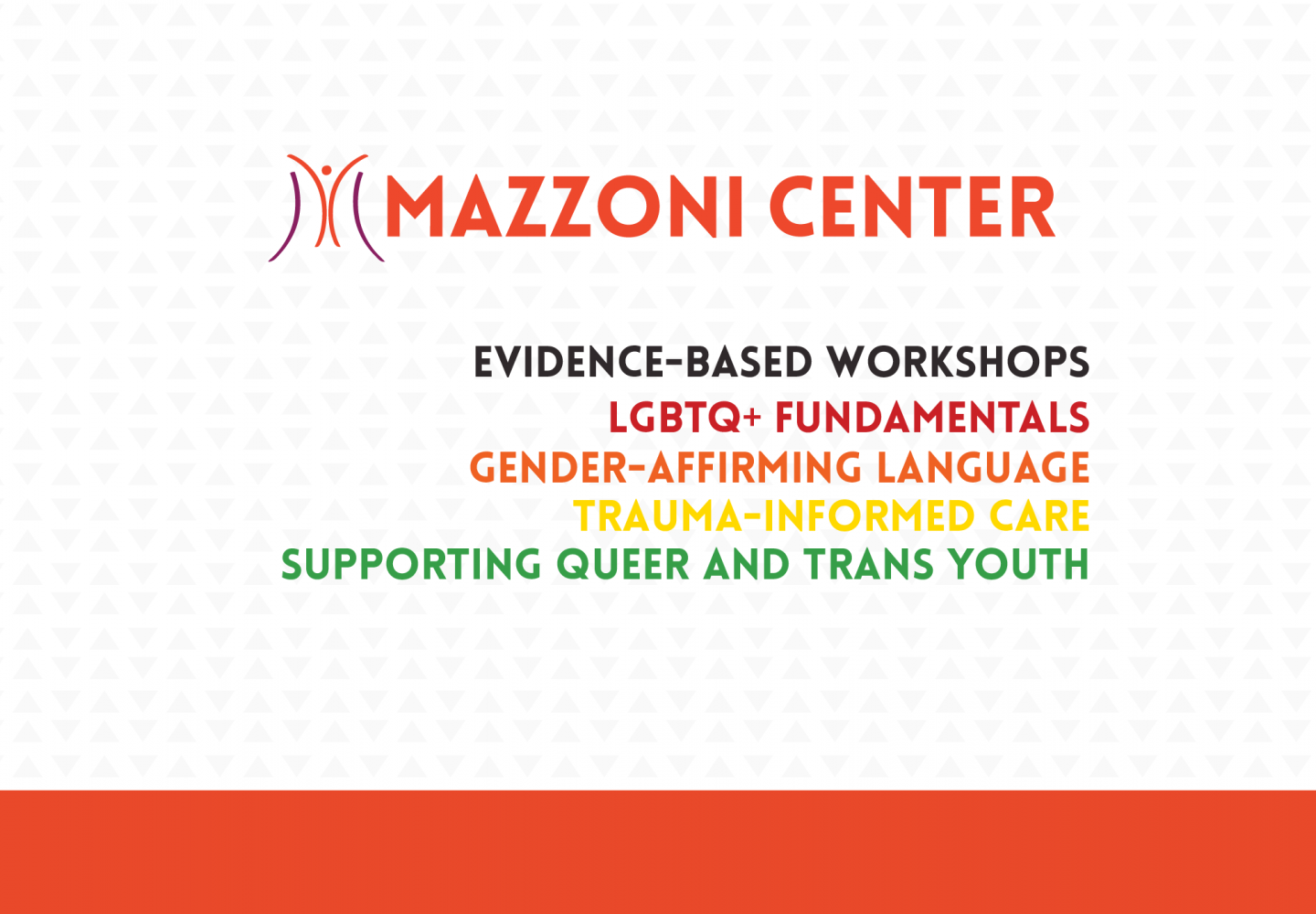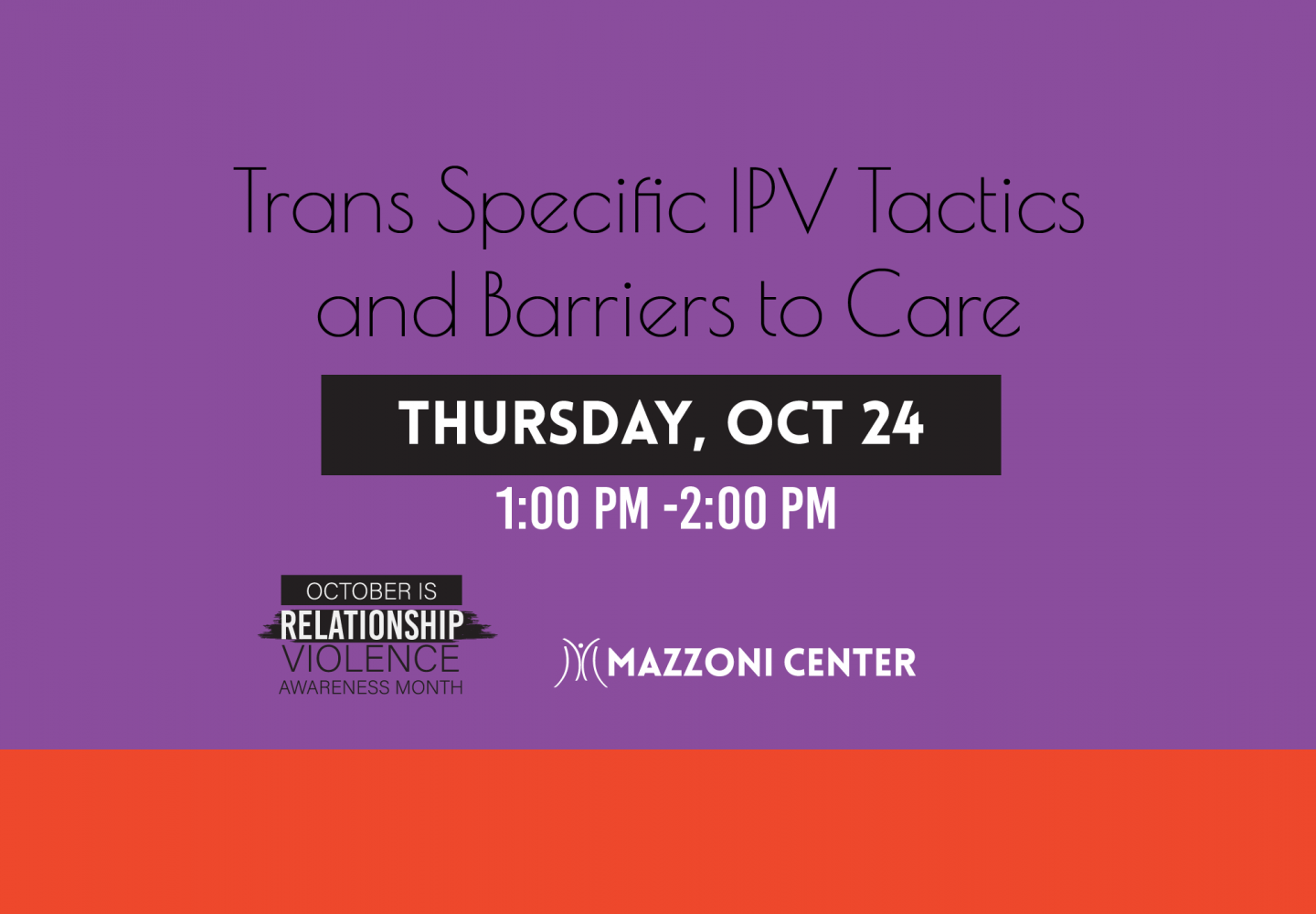Dynamic Consent Practices that Apply to YOU: From Casual to Committed Relationships! | Sexual Assault Awareness and Advocacy Month
Dynamic Consent Practices that Apply to YOU: From Casual to Committed Relationships! | Sexual Assault Awareness and Advocacy Month

Hello and welcome to the second installment of our Sexual Assault Awareness and Advocacy Month blog post series! Our first post was about sexual violence and today's is all about consent. Check out our blog next Monday for some tips on supporting survivors!
To the LGBTQ+ folks who have experienced sexual violence: we believe you. If you need support, please call WOAR (Philadelphia Center Against Sexual Violence) at their 24-hour crisis hotline number: 215-985-3333.
Most of us are aware of the basic consent lesson: “Ask for consent before you get down to it.” When it comes to consent, this simplistic viewpoint makes it harder to apply to various situations. It gives us a limited vision of how dynamic and nuanced consent can be.
Let us start with a brief foundation that applies to all relationships: Consent should be practiced before, during, and after sex.
BEFORE: It is good to get an idea of what the person(s) you are interested in is into before having sex. Talking over what you like is great because you already have a roadmap or a menu of tasty options before sex. Knowing what the person(s) likes prevents feeling unsure about what to do, and it can create more confidence in the bedroom! It also prevents having someone assume the other is into something, trying it, and it not turning out well or making a person feel bad. Think of bringing up this list with someone you are interested in having sex with as foreplay, co-creating a fun time together.
- What type of energy do we want to bring to this?
- What types of sensations do you like? Soft, gentle, rough, stingy, thuddy, pain
- What do you like to do? Specific acts, types of play, fantasy, fetishes
- What type of body language and cues tell me if you are into something vs. not?
- Do you have any types of toys that you enjoy for us to use?
- What is your comfort level or experience level is with specific sex acts or toys? (And if something is new, what types of check-ins would be helpful during?)
- What type of language do you like? Is there anything you want to be called while having sex? (Gender affirming language for body parts/role plays, degradation, dirty talk, etc.)
- Do you want to play with and create a power dynamic? (Switch, top/bottom dominant/submissive, etc.)
- How what types of checking in feel good to you during sex? Is there anything specific that you think is essential to be checked in about each time?
- Do you have any no-go zones, boundaries, or limits?
- Do you have any potential triggers to be aware of?
- What type of care/connection do you want to receive after sex?
- What type of care might you want to receive if you were to be triggered?
- Do you have any medical needs that are important to know about when having sex?
- What are the safer sex practices that we want to use?
- Has the person(s) been tested recently?
DURING: Even with the most detailed before-sex conversations, things can still change and need to be adjusted in the moment. That is why having check-ins during sex is so helpful. It is vital that people know
that folks can change their mind. Additionally, we want to try to be as specific as possible when checking in. You want to name where you want to touch the body and what you plan to do. Telling someone what you are going to do to them and how you will do it builds anticipation and can be a hot way to dirty talk while keeping consent present throughout the experience.
AFTER: What happens after sex shapes how the whole experience feels. It is good to ask what type of connection would feel good after sex. Things that might feel good after sex are cuddling, food and water, a cigarette, talking about the experience and processing it together, being told that they are loved, etc. Figuring out your sex partner’s needs by checking in can help them feel cared for and maintain the connection you just built.
Casual Sex and Casual Relationships:
Casual sex or pick-up play is the most aligned with the foundational consent lesson above. When you are having sex with a new person(s) each time, it is great to keep doing all the consent practices we just outlined. When you have a more ongoing, casual arrangement like a regular hookup or friends with benefits, etc., there are a few different things that you can add to the foundation. Ask:
- What does casual mean to you? Or what does being a secondary partner in a hierarchical poly dynamic mean to you?
- Does the arrangement involve emotional intimacy and talking to each other(s) about feelings? How much emotional labor is expected in the relationship?
- How often do you want to contact each other, and what contact methods feel best?
- Are we going on dates?
- How much time can we expect to spend together?
- How much of my life should I share with you? (Are we going to meet each other’s friends? etc.)
- Are we having sex with other people? And what safer sex practices come along with that?
- What expectations are there for sharing details about other sexual or romantic relationships?
- How will we work through jealousy if it comes up?
- How long do you imagine our casual relationship lasting? Is there a set end date to the relationship? (Will we become exclusive; do we want to end this eventually, etc.)
Long Term Relationships:
Most long-term committed partners have already built-up trust between each other. They often have a pre-existing understanding of each other’s likes and dislikes. Going through a long pre-sex consent checklist from the foundation each time a long-term couple has sex might be a little bit redundant and unnecessary. While it is crucial to initially go through the foundations of consent outlined above, it may also be helpful to explore Consent Castles from Everyday Feminism. It is an excellent consent metaphor for folks in long-term relationships.
Conclusion:
Do not be afraid to get creative and make this consent lesson your own! Apply it to your everyday life!
-----
LGBTQ+ Survivors: You are not alone. If you have experienced sexual violence and need assistance, please call WOAR’s 24-hour crisis hotline at 215-985-3333.
This blog post is part two of a four-part series for Sexual Assault Awareness and Advocacy Month and was written by Quinn Pellerito. These blog posts are brought to you through the lotus. program, a grant-funded sexual violence educational program developed in collaboration between Mazzoni Center and WOAR: Philadelphia Center Against Sexual Violence. The lotus. program cultivates the safety and liberation of LGBTQ victims and survivors of sexual violence by inspiring action, centering nonlinear healing, and promoting radical vulnerability through narrative-based educational opportunities for service providers and community members. The lotus. program offers all services free of charge.
This project was supported by 2017-UD-AX-0011 awarded by the Office on Violence Against Women, U.S. Department of Justice. The opinions, findings, conclusions, and recommendations expressed in this document are those of the author and do not necessarily reflect the views of the U.S. Department of Justice, Office on Violence Against Women.


